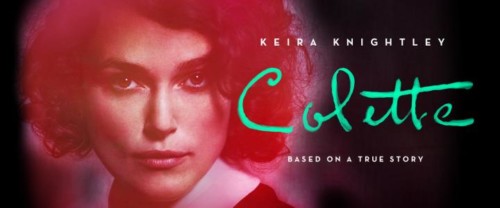Colette (2019) Review
Colette (2019)
Director: Wash Westmoreland
Screenwriters: Richard Glatzer, Rebecca D. Lenkiewicz, Wash Westmoreland
Starring: Kiera Knightley, Dominic West, Fiona Shaw, Robert Pugh, Sloan Thompson, Arabella Weir, Mate Haumann, Ray Panthaki, Al Weaver, Dickie Beau
Still Alice director Wash Westmoreland has taken to the genre of period drama with the release of 2018/19’s Colette, a portrait of the talented female writer who was secretly behind some of the most popular books in France around the turn of the 20th century. The result is a film that is so drab, needlessly elongated and so intensely biographical that even some astute contemporary political statements regarding media industry sexism, gender politics and sexuality prejudice can’t save this release from being a colossal bore.
The major disconnect on show in Colette is the piece’s insistence upon describing events that are believed to have occurred as opposed to offering reasons as to why they happened, what their significance was or why it is significant for us to be hearing about such events at the current moment. For a story that seems at the very least to be a compelling one regarding the crushing of female aspiration and the ages old oppression of the female voice, these aspects of the picture surprisingly seem to be tacked on to the narrative as opposed to being critical to it. In clear view these themes and ideologies most certainly are, but they become more like dressing as Colette quickly reveals itself to be more like a reading of an excitingly bullet pointed daily journal otherwise filled with mundane actions and a complete lack of introspection. The movie feels like one that has very little direction from the page other than to faithfully recount the actions of its central most character, offering the most Wikipedia-entry type of screen story you could possibly imagine.
That’s not to say that the performances aren’t worthy of praise however, as Keira Knightley particularly draws the eye as the rambunctious protagonist and Dominic West does his very best to gain some emotional leverage from a stereotypically misogynist sex addict turned fat alcoholic. The issue is that neither character is given the opportunity to establish itself, the actions of the central most Colette being particularly dumbfounding from scenario to scenario, her motivations clearly lacking any real foundations on the screen itself, each sequence therefore requiring a quite substantial disconnect from reality or any sense of connection to the character. Why would such a strong woman be so satisfied with her atrocious life situation just because she’s been given a house? We don’t know. We’re never encouraged to find out. Colette simply does things because the history books dictate that she does, and by the time we’re offered some sort of reasonable character revelation, it’s over, leaving the taste of a poorly constructed sports movie in which the heroin finally does what we all wish for her to do. The problem is that we wish for her to do it because that’s what society accepts as morally correct in the current age, we don’t wish for her to do it based on anything we know of her character because the character doesn’t go anywhere – she is introduced as an opinionated go-getter and leaves us the exact same, no revelation from minute 20 being anything entirely new to the character than what had already been established. She fails to develop, and as her life is mapped out it becomes increasingly difficult to find an entry point to discovering what her motivations and intentions are.
In contrast to the shoddy character development and lack of progression across the board in terms of the screenplay, Colette does look stunning. It’s a film that has clearly been photographed with all of the class and sophistication of the very best of period dramas, cinematographer Giles Nuttgens establishing an authentic sense of time while remaining entirely faithful to the grandiosity of the genre and capturing some truly fantastic shots both personal to the characters and more wide in scope. But like the performances were perhaps too good for the material, the visuals were too good for the score.
Colette’s score, composed by Thomas Adès, acted as if a consistent audible representation of West’s character’s presence in the film: a firm hand on the back of your neck, firmly pressing you under the water, forcing you to drown in all of the mundane events that this film was desperate to push. It was encroaching nonsense demanding some sort of reaction to a slow zoom that we had no reason to care for, the typical tones we’ve come to associate with a huge moment of sadness forced into the experience in such a rushed and poorly thought out manner that these moments truly encapsulated the very existence of Colette as a whole; that being that it is a film totally devoid of any realistic intention to explore the real Colette and is instead quite clearly an attempt to exploit the current landscape’s need for more content about powerful women in order to make a quick buck. There is art to behold in this piece, but Still Alice it is not.
9/24
[DISPLAY_ULTIMATE_SOCIAL_ICONS]


